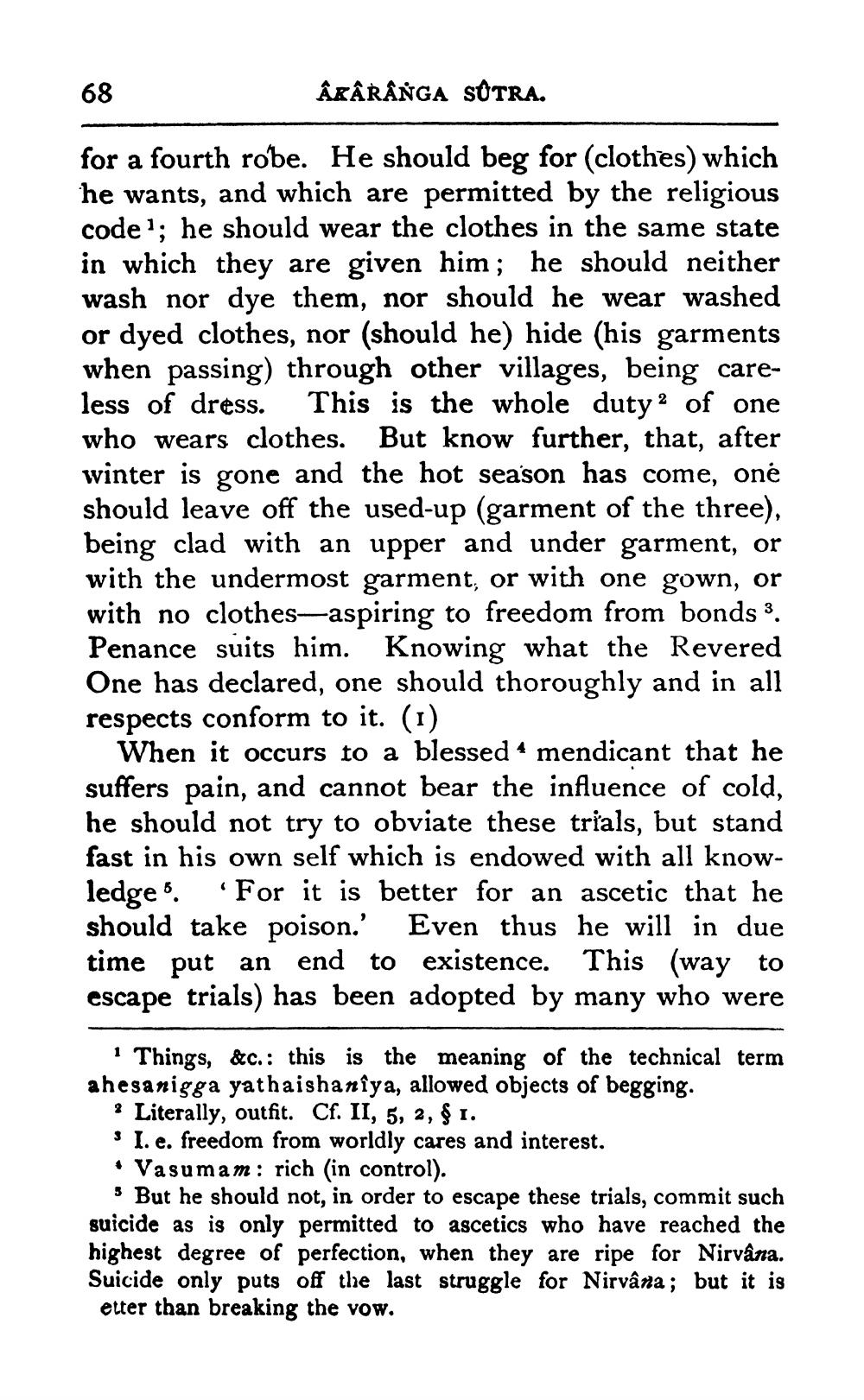________________
68
ÂRÂRÂNGA SUTRA.
for a fourth robe. He should beg for (clothes) which he wants, and which are permitted by the religious code ?; he should wear the clothes in the same state in which they are given him; he should neither wash nor dye them, nor should he wear washed or dyed clothes, nor (should he) hide (his garments when passing) through other villages, being careless of dress. This is the whole duty ? of one who wears clothes. But know further, that, after winter is gone and the hot season has come, one should leave off the used-up (garment of the three), being clad with an upper and under garment, or with the undermost garment, or with one gown, or with no clothes—aspiring to freedom from bonds 3. Penance suits him. Knowing what the Revered One has declared, one should thoroughly and in all respects conform to it. (1)
When it occurs to a blessed * mendicant that he suffers pain, and cannot bear the influence of cold, he should not try to obviate these trials, but stand fast in his own self which is endowed with all knowledge 6. 'For it is better for an ascetic that he should take poison. Even thus he will in due time put an end to existence. This (way to escape trials) has been adopted by many who were
1 Things, &c.: this is the meaning of the technical term ahesanigga yathaishanîya, allowed objects of begging.
3 Literally, outfit. Cf. II, 5, 2, $ 1. S I. e. freedom from worldly cares and interest. • Vasumam: rich (in control).
? But he should not, in order to escape these trials, commit such suicide as is only permitted to ascetics who have reached the highest degree of perfection, when they are ripe for Nirvana. Suicide only puts off the last struggle for Nirvana; but it is etter than breaking the vow.




